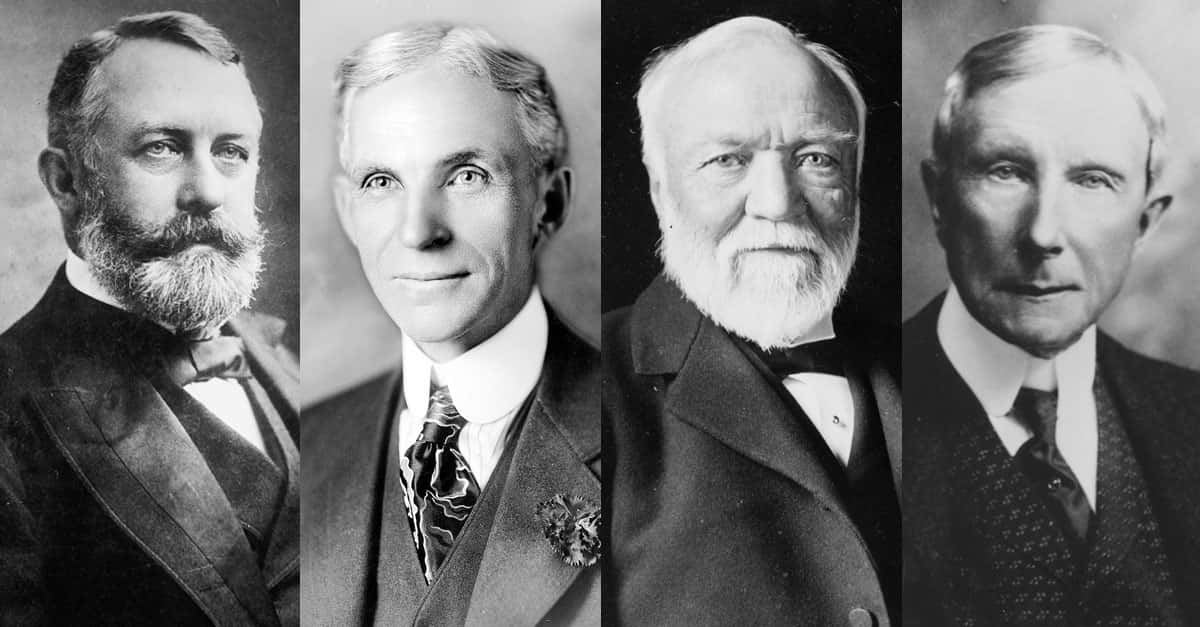
Andrew Carnegie: Captain of Industry or Robber Baron?
Introduction
Andrew Carnegie, a name that evokes both admiration and criticism, was a prominent industrialist and philanthropist of the 19th century. Born into a modest Scottish family, Carnegie rose to become one of the wealthiest men in history, amassing a vast fortune through his ventures in the steel industry. However, his methods and impact on society have been subjects of heated debate. This article will delve into the life of Andrew Carnegie, examining whether he was a Captain of Industry, a visionary leader who contributed positively to society, or a Robber Baron, a ruthless capitalist who exploited workers and resources for personal gain.
Andrew Carnegie: Captain of Industry or Robber Baron?
In this section, we will explore the LSI keywords related to Andrew Carnegie and discuss his early life, business ventures, philanthropy, and the controversies surrounding his legacy.
Early Life and Immigrant Experience
Andrew Carnegie‘s journey began in 1835 in Dunfermline, Scotland, where he was born into a modest weaver’s family. His family immigrated to the United States when he was just a child, seeking better opportunities. The challenges he faced as an immigrant in America shaped his character and influenced his later business practices. Carnegie’s perseverance and ambition were evident even in his youth.
Rise of the Steel Industry
The 19th century saw rapid industrialization in the United States, and Andrew Carnegie played a pivotal role in this transformation. He recognized the potential of the steel industry and embraced new technologies to revolutionize the production of steel. The development of the Bessemer process catapulted Carnegie into the steel empire he would eventually build.
Carnegie’s Business Practices
As Carnegie expanded his steel empire, he implemented several business practices that set him apart. He embraced vertical integration, owning every aspect of the steel production process from raw materials to distribution. While this approach streamlined operations, it also led to accusations of monopolistic behavior.
Labor Relations and the Homestead Strike
The Homestead Strike of 1892 was a turning point in Carnegie’s legacy. The violent clash between striking workers and Pinkerton guards at his Homestead Steel Works resulted in several deaths. Critics argue that Carnegie’s stance on labor relations was exploitative and detrimental to the workers’ well-being.
Philanthropy and Gospel of Wealth
Later in his life, Andrew Carnegie dedicated much of his wealth to philanthropic endeavors. He believed in the “Gospel of Wealth,” a philosophy that advocated using wealth for the greater good of society. Carnegie’s contributions led to the establishment of numerous libraries, educational institutions, and cultural centers. However, some skeptics argue that his philanthropy was merely a strategy to deflect criticism of his business practices.

The Carnegie Foundation and World Peace
One of Carnegie’s most notable contributions was the establishment of the Carnegie Foundation for the Advancement of Teaching, which later became the Carnegie Corporation of New York. He also funded the construction of the Peace Palace in The Hague, reflecting his commitment to promoting international peace.
The Debate: Captain of Industry vs. Robber Baron
The question of whether Andrew Carnegie was a Captain of Industry or a Robber Baron remains contentious. Advocates of his “Captain of Industry” title praise his innovation, contributions to economic growth, and philanthropy. On the other hand, critics argue that his ruthless business practices and treatment of workers overshadow his charitable activities, earning him the label of “Robber Baron.”
Balancing the Legacy
It is essential to acknowledge both the positive and negative aspects of Andrew Carnegie’s legacy. Recognizing his transformative impact on the steel industry and society, while also understanding the controversies surrounding his practices, provides a more holistic perspective on this enigmatic figure.
FAQs (Frequently Asked Questions)
- Q: Was Andrew Carnegie the richest man in history? A: While Andrew Carnegie was undoubtedly one of the wealthiest individuals in history, he was not the richest. During his time, he competed with other magnates like John D. Rockefeller and Cornelius Vanderbilt for the title of the wealthiest American.
- Q: Did Carnegie exploit his workers for profit? A: The Homestead Strike and other labor-related incidents suggest that Carnegie’s treatment of workers was harsh. He prioritized profits and efficiency, leading to accusations of worker exploitation.
- Q: What were Carnegie’s major philanthropic contributions? A: Carnegie’s philanthropy focused on education, culture, and international peace. Some of his significant contributions include the funding of libraries, universities, and the Peace Palace in The Hague.
- Q: Did Carnegie’s “Gospel of Wealth” philosophy have a lasting impact? A: Yes, Carnegie’s “Gospel of Wealth” influenced many other wealthy individuals to contribute to philanthropy. The idea of giving back to society is still prevalent among modern-day philanthropists.
- Q: How did Carnegie’s early life influence his career choices? A: Carnegie’s immigrant experience taught him the value of hard work and resourcefulness, which guided his entrepreneurial pursuits and desire for success.
- Q: What is the significance of the Homestead Strike in Carnegie’s legacy? A: The Homestead Strike highlighted the tension between labor and management during the Industrial Revolution and raised questions about the ethics of Carnegie’s business practices.
Conclusion
Andrew Carnegie’s life and legacy continue to captivate historians and the public alike. Whether he was a Captain of Industry or a Robber Baron, there is no denying his significant influence on American industry and philanthropy. While his business practices may have been ruthless, his contributions to education and culture have left a lasting impact on society. Understanding the complexities of Andrew Carnegie’s character and actions can help us learn valuable lessons about the balance between ambition, success, and ethical responsibility.

